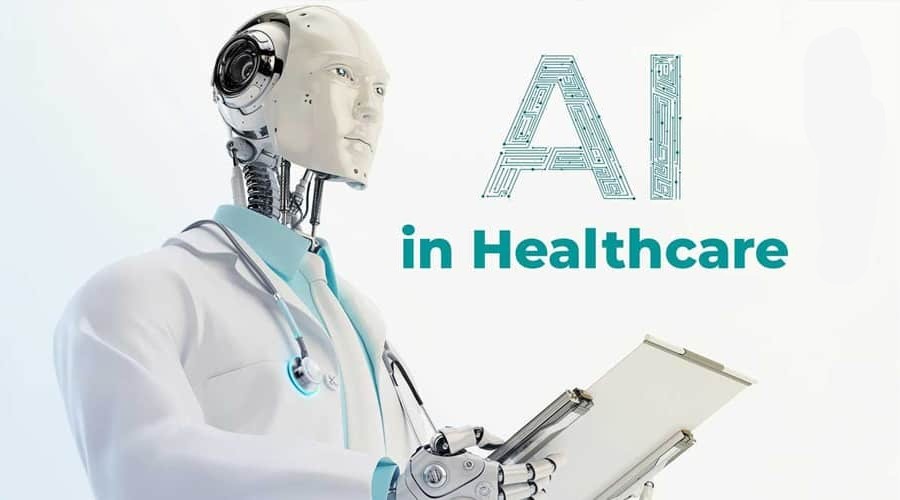
At its core, AI in Health Care leverages data-driven algorithms to analyze vast amounts of medical data quickly and accurately. Medical professionals use AI to streamline workflows, enhance clinical decision-making, and predict patient outcomes. As the healthcare sector grapples with growing patient populations and workforce shortages, AI offers solutions that improve operational efficiency while maintaining high standards of care.
AI’s Role in Medical Diagnostics
AI’s ability to rapidly analyze medical data is one of its most impactful contributions to healthcare. For example, AI-driven diagnostic tools now assist physicians in interpreting medical images, such as X-rays, CT scans, and MRIs, helping detect diseases like cancer, heart conditions, and neurological disorders earlier and with greater accuracy. Machine learning models can flag abnormalities, providing faster and more reliable diagnostic insights than traditional manual methods. This capability is especially critical in areas where early detection significantly impacts treatment outcomes.
Companies and startups are leading the way in developing AI-driven diagnostic tools. For instance, Sierra Medical uses deep learning algorithms to detect pre-cancerous cells in standard biopsies, improving precision and reducing diagnosis time. Similarly, AI-enabled stroke triage systems, like those developed by Hevi AI, are helping hospitals quickly identify critical stroke cases, reducing delays in treatment and improving patient recovery rates.
AI in Personalized Medicine and Treatment Plans
AI in Health Care is not limited to diagnostics; it is also driving significant advancements in personalized medicine. With the ability to analyze genetic data, medical records, and clinical trial results, AI helps doctors tailor treatments to individual patients, optimizing therapy outcomes. This shift toward personalized treatment means that patients receive care designed for their unique genetic makeup and medical history, improving efficacy and reducing side effects.
In the pharmaceutical industry, AI accelerates drug discovery by analyzing vast datasets, identifying promising compounds, and predicting drug responses. As AI technologies evolve, they will continue to streamline clinical trials, reducing the time and cost required to bring new drugs to market.
AI and Robotics in Surgery
AI-powered robotics are revolutionizing surgical procedures by increasing precision and reducing human error. Robotic surgery systems guided by AI provide surgeons with enhanced control, enabling them to perform minimally invasive procedures with greater accuracy. This approach reduces recovery times, minimizes scarring, and improves overall patient outcomes. The integration of AI in surgical procedures is especially valuable in complex operations where precision is critical.
For instance, RIF Robotics has developed an AI-driven system to automate surgical tray assembly, reducing the time required for operating room preparation. This technology is just one example of how AI can improve hospital efficiency and patient safety.
Overcoming Challenges in AI Adoption
Despite its immense potential, adopting AI in Health Care comes with challenges. Data privacy concerns, regulatory hurdles, and the risk of bias in AI algorithms are significant issues. These still need to be addressed. Ensuring the security and ethical use of patient data is paramount, as healthcare organizations integrate AI into their operations. Additionally, healthcare providers must carefully manage the transition to AI-enhanced systems to prevent over-reliance on technology at the expense of human expertise.
Healthcare leaders must also work to mitigate concerns related to job displacement. While AI will automate many routine tasks, it will not replace the need for skilled healthcare professionals. Instead, AI is expected to augment the abilities of doctors and nurses. This enables them to focus on more complex patient care.
The Future of AI in Health Care
The future of AI in Health Care is very promising. Ongoing advancements are expected to make healthcare more accessible, affordable, and efficient. AI will continue to enhance diagnostic accuracy, personalize treatments, and streamline administrative tasks. As technology advances, AI-powered telehealth platforms will play a larger role in remote patient care, especially in underserved regions. These platforms allow doctors to monitor patients and provide real-time recommendations, improving access to care without overburdening healthcare facilities.
The integration of AI into hospital management systems will also improve operational efficiency. AI-powered tools can automate administrative tasks such as appointment scheduling, insurance claim processing, and inventory management. This allows hospitals to allocate resources more effectively and reduce operational costs.
In conclusion, AI will revolutionize the medical field, transforming healthcare through improved diagnostics, personalized treatments, and streamlined processes. It is improving patient care, enhancing diagnostic accuracy, and optimizing treatment plans. While challenges remain, the benefits far outweigh the risks. As healthcare organizations continue to invest in AI, they will unlock new possibilities for improving health on a global scale.

